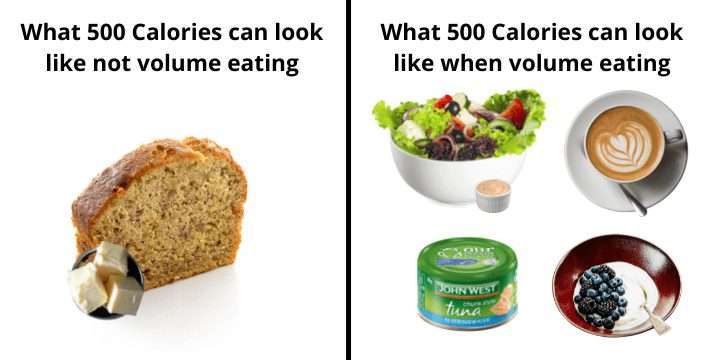When it comes to understanding obesity, calorie surplus is often cast as the villain.
For decades, we have been told that overeating leads to an excess of calories, which then gets stored as fat, ultimately causing obesity.
But is it that simple?
Could calorie surplus actually be an overlooked myth behind the obesity epidemic?
In this article, LeanAndFit shall dive into the science behind calorie surplus, its role in weight gain, and whether it is truly the main culprit in the global obesity crisis—or if there’s more to the story.
Points Covered in this Article
- What is a Calorie Surplus?
- Calorie Surplus Diet: The Basics
- Calorie Surplus Foods: Are They the Problem?
- Calorie Surplus for Weight Gain: Necessary or Excessive?
- Can You Lose Fat in a Calorie Surplus?
- How Much Caloric Surplus to Build Muscle?
- FAQs on Calorie Surplus and Obesity
- Calorie Deficit vs. Calorie Surplus: The True Difference
- Conclusion: Is Calorie Surplus the Overlooked Myth Behind Obesity?
What is a Calorie Surplus?
At its core, a calorie surplus means consuming more calories than your body burns in a day.
Every individual has a specific caloric maintenance level, which represents the number of calories needed to sustain basic bodily functions and daily activity.
When you eat above this threshold, the extra calories are stored as fat or used to build muscle, depending on factors such as activity level and metabolism.
However, caloric surplus meaning differs depending on context.
In fitness, a calorie surplus is encouraged for those looking to gain muscle, while in everyday life, it’s often blamed for obesity.
The relationship between a caloric surplus and body composition is nuanced and complex, going beyond the simple equation of calories in versus calories out. So, calorie control is vital for maintaining your overall health.

Calorie Surplus Diet: The Basics
A calorie surplus diet is intentionally designed to provide more energy than the body needs. It is commonly used in bodybuilding to promote muscle growth, paired with weight training to ensure that the excess calories are used effectively.
This kind of diet includes calorie surplus foods like high-protein options, complex carbohydrates, and healthy fats. But is this kind of diet sustainable, or does it contribute to long-term fat gain, eventually leading to obesity?
While these diets are often seen in fitness and athletic communities, they raise the question of whether excessive caloric intake can lead to unintended consequences, like fat accumulation and metabolic disruptions.
Calorie Surplus Foods: Are They the Problem?
Not all calories are created equal. Foods rich in empty calories—think processed foods high in sugars and trans fats—are often labeled as calorie surplus foods.
These foods are more likely to lead to fat gain than nutrient-dense options like lean proteins, whole grains, and vegetables.
Interestingly, research suggests that it is not just the surplus of calories that leads to obesity, but the quality of those calories.
Foods with a high glycemic index, for instance, cause rapid spikes in blood sugar and insulin, promoting fat storage. This points to a deeper issue: it is not only about caloric surplus to gain weight, but the type of calories you’re consuming.
Calorie Surplus for Weight Gain: Necessary or Excessive?
For those looking to bulk up, a calorie surplus for weight gain is often recommended. Athletes and bodybuilders follow this method to ensure they have enough energy to fuel muscle growth.
In this context, a caloric surplus is not only encouraged but necessary. The issue arises when the surplus is mismanaged, leading to excessive fat accumulation.
It’s essential to differentiate between controlled calorie surpluses for muscle gain and unchecked overeating.
A measured surplus can lead to lean muscle mass, while an unregulated one may result in obesity. The line between the two is thin and often blurred in everyday eating habits.
Can You Lose Fat in a Calorie Surplus?
One of the most debated questions in the fitness world is: can you lose fat in a calorie surplus?
The short answer is yes, but it is highly dependent on factors such as metabolic rate, HIIT exercise routine, and macronutrient balance.
For instance, individuals who engage in intense resistance training can gain muscle while simultaneously losing fat, even in a calorie surplus.
However, this process requires precision. Without a carefully monitored regimen, the body is more likely to store fat rather than burn it.
This brings us back to the idea that a calorie surplus, when mismanaged, can contribute to obesity, but in the right hands, it can be used to build muscle and promote overall health.
How Much Caloric Surplus to Build Muscle?
When it comes to building muscle, the question is not whether you need a surplus, but how much caloric surplus to build muscle effectively.
Studies suggest that a surplus of around 250-500 calories above maintenance is ideal for lean muscle gain without excessive fat accumulation.
Exceeding this range often leads to higher fat storage rather than muscle gain, which contributes to the obesity narrative surrounding calorie surplus.
Moderation is key, as a massive caloric surplus will likely lead to more harm than good, tipping the scale toward fat gain rather than lean muscle development.
FAQs on Calorie Surplus and Obesity
Q-1: If “a calorie is a calorie,” why do some foods lead to easier weight gain?
A-1: Same energy, different biology. Protein has a higher thermic effect (more calories burned during digestion), while fiber slows absorption and boosts fullness. Ultra-processed foods are softer, faster to eat, and less satiating per calorie, nudging portions upward. Two diets with identical calories can feel very different in hunger, fullness, and how easy it is to accidentally overshoot.
Q-2: Do I have to be in surplus every single day to gain body fat?
A-2: No—fat gain is about net energy over time. You might overeat Saturday and undereat Sunday, yet still average a weekly surplus. Conversely, scale bumps after a big meal are often water and glycogen, not fat. Track trends across weeks, not day-to-day noise, to see whether you’re truly in the black (surplus) or red (deficit).
Q-3: Is a calorie surplus always just “lack of willpower,” or can biology move the goalposts?
A-3: Biology moves them constantly. Sleep loss, chronic stress, some medications, and hormonal states alter hunger and how many calories you burn at rest and through daily movement. NEAT (unplanned fidgeting and activity) can quietly drop when you diet and rise when you overfeed, changing your “maintenance” target without you noticing.
Q-4: If I exercise, can I “cancel out” a surplus?
A-4: Exercise helps, but bodies often compensate—by getting hungrier or moving a bit less later in the day. Cardio interval training and strength training protect heart health and muscle, but they do not guarantee weight loss if intake climbs to match output. The winning combo is activity plus food choices that keep hunger in check (protein, fiber, minimally processed meals).
Q-5: If I’m already obese, does that mean I’m always in a surplus?
A-5: Not necessarily. Many people with obesity maintain a stable weight for long periods—meaning they are at maintenance, not constant surplus. The challenge is that their maintenance may be lower than expected due to adaptive metabolism and lower spontaneous movement. Small, sustainable changes that reduce energy density, boost protein and fiber, and improve sleep can lower “effective” maintenance and make a modest deficit feel doable.
Calorie Deficit vs. Calorie Surplus: The True Difference
Understanding the difference between calorie deficit and calorie surplus is crucial for managing weight and preventing obesity. Both approaches serve specific purposes—calorie deficits help reduce body fat, while calorie surpluses support muscle growth.
However, long-term success lies in finding a balance between the two.
Calorie Deficit: A Path to Weight Loss
A calorie deficit occurs when you consume fewer calories than your body needs, prompting it to burn stored fat for energy. This approach is commonly recommended for weight loss.
However, as per health experts, extreme calorie deficits can slow down your metabolism, causing the body to conserve energy. This often leads to “starvation mode,” where fat loss stalls and muscle loss increases.
To avoid these pitfalls, focus on a moderate calorie reduction while incorporating protein-rich foods and resistance training to preserve muscle mass.
Calorie Surplus: Essential for Muscle Gain:
A calorie surplus, on the other hand, involves consuming more calories than you burn, which is key for building muscle. When paired with strength training exercises such as compound lifts to accelerate fat burning, this surplus helps the body repair and grow muscles.
However, as per fitness professionals, maintaining a calorie surplus for too long without physical activity can lead to fat accumulation and increase the risk of obesity.
Balancing calorie intake with exercise is vital to ensure the extra calories contribute to muscle growth, not fat storage.
Finding the Right Balance:
The key to long-term weight management is understanding when to implement a calorie deficit and when to increase intake.
As per nutrition experts, personalized approaches based on individual needs—age, activity level, and health goals—yield the best results.
Incorporate regular resistance training, avoid drastic dieting, and focus on gradual, sustainable lifestyle changes.
By finding the right balance, you can achieve a healthy weight without compromising your metabolic health or well-being.

What is My Final Opinion?
So, is calorie surplus truly the overlooked myth behind obesity?
The answer is both “yes” and “no”.
While a surplus of calories undeniably leads to weight gain, the type of calories and their distribution across macronutrients play an equally significant role.
Obesity is a multifaceted condition, driven by factors such as genetics, lifestyle, metabolism, and even emotional eating patterns.
A caloric surplus to gain weight is not inherently harmful, especially when managed in a controlled environment like bodybuilding.
However, when left unchecked, excessive calorie intake—particularly from processed, high-sugar foods—can lead to fat gain and obesity.
The key takeaway is that the quality of the calories consumed matters just as much, if not more, than the quantity.
Ultimately, caloric surplus meaning extends beyond the simple “eat more, gain more” equation.
It is about making informed choices and understanding how your body responds to both surplus and deficit conditions.
Obesity is not solely caused by overeating—it is a complex issue with multiple contributing factors.
The true culprit may be a combination of poor dietary choices, sedentary lifestyles, and a lack of understanding about how our bodies metabolize food.
By focusing on quality, balance, and informed decisions, you can navigate the fine line between a healthy calorie surplus and unhealthy fat gain.
References: